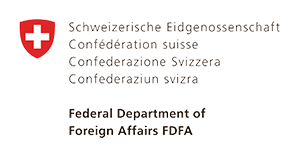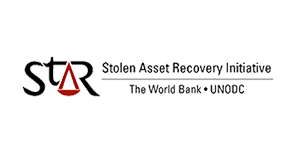What are the guidelines?
Asset recovery is an intricate and time-consuming process. The Guidelines for the Efficient Recovery of Stolen Assets unravel the asset recovery process, breaking it down into practical, manageable guidelines. This allows the target audience to focus on the asset recovery process in a comprehensive manner.
The guidelines are accompanied by a non-binding step-by-step approach. Together, they are intended to assist practitioners, policymakers and legislators to better plan each step of the process.
The breakdown into guidelines and steps enable the asset recovery process to be viewed outside its traditional thematic streams of: a) Intelligence and pre-investigation activities; b) Investigation; c) Prosecution and adjudication; d) Confiscation and restitution. Other topics of core importance to the asset recovery process, e.g. communication strategies, trust building and expectation management, are also included.
The guidelines and steps form an interactive checklist of elements to consider when establishing an asset recovery policy or when devising an investigation strategy.
Who are they for?
- Practitioners (e.g. intelligence officers, law enforcement and judicial authorities) can in the short term gain knowledge and perspectives on the asset recovery process. This may result in medium- to long-term enhanced capacities for both requesting and requested jurisdictions to recover stolen assets.
- Policymakers will have a better understanding of the asset recovery process in a manner that will allow them to propose targeted policies potentially resulting in a meaningful impact.
- Legislators will be able to address legal challenges posed by and within the asset recovery process. They will be able to propose, where applicable, legislative solutions for their jurisdictions to recover stolen assets, while ensuring observance of the fundamental, constitutional and human rights of the parties involved.
The guidelines may also reach a wider audience, including:
- General public. The website can act as a medium for knowledge of the asset recovery process. The general public can gain understanding of the intricacies of the asset recovery process, ultimately helping to manage expectations.
- Academia will be able to perceive in more detail and through different angles the problematic(s) involving the asset recovery process. This will assist in research to overcome these challenges.
About the Lausanne Seminars
Since 2001, Switzerland has been organising asset recovery expert seminars in Lausanne (Lausanne Seminars) with a view to facilitating an exchange between asset recovery practitioners on emerging issues as well as practical and legal challenges related
to asset recovery. The Lausanne Seminars also provide an excellent platform to strengthen international co-operation in combating corruption and recovering stolen assets. Within this forum, asset recovery practitioners (prosecutors, investigators,
judges) and policy makers from around 30 participating States are able to share expert knowledge, best practices and practical experience involving the recovery of illicit assets.
Within the Lausanne Process, Switzerland works in close co-operation with the International Centre for Asset Recovery (ICAR) of the Basel Institute on Governance and the World Bank/UNODC Stolen Asset Recovery Initiative (StAR).
Pursuant to two United Nations mandates, the most recent seminars focused on the development of the Guidelines for the Efficient Recovery of Stolen Assets and a step-by-step guide to the asset recovery process, which were finalised in 2014 and 2017 respectively.
Both mandates arose from discussions during Lausanne Seminars and the participants’ recognition that more practical guidance on asset recovery, beyond legislative guidance, is required to reduce the hurdles faced by practitioners, particularly in
cases with an international dimension.


